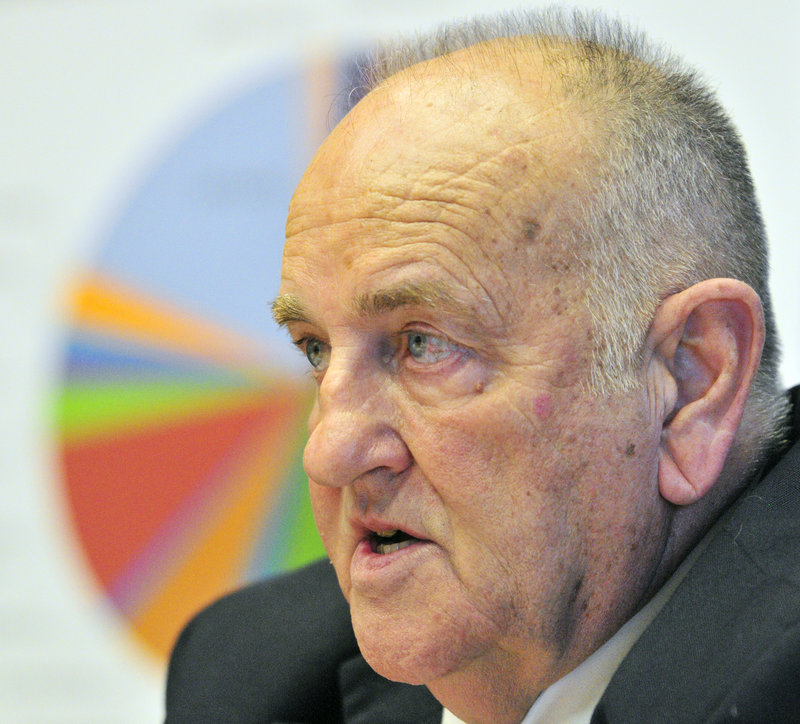AUGUSTA — The LePage administration’s proposal to close a $112 million shortfall in the current budget for the Department of Health and Human Services relies almost entirely on tapping into the state’s reserve fund and other one-time fixes.
It is too late to balance the budget that ends June 30 by reforming programs or cutting services, said Sawin Millett, commissioner of administration and finance, after a news briefing Friday.
“We’re halfway through the fiscal year and we have the pressure to spend $112 million,” Millett said. “You just can’t achieve savings this far into a fiscal year, so you have to come up with these kinds of one-time solutions.”
The proposal looks mostly uncontroversial.
Dawn Hill, D-York, Senate chairwoman of the Legislature’s Appropriations Committee, which will consider the proposal, said her first feeling was “relief” that savings were not planned primarily by cutting programs.
“I think we’ll come to a consensus on this relatively quickly,” Hill said.
The administration said the DHHS’s shortfall was caused mainly by the need for $87 million in supplemental funding for MaineCare, Maine’s Medicaid program. That includes expenses that are $54 million over budget and the state’s inability to make certain Medicaid changes that the last Legislature approved but the federal government rejected.
Millett said the largest single component of the proposal to close the gap would use $40 million of $44.5 million in the state’s Budget Stabilization Fund, often called the rainy day fund.
“That’s why you have the stabilization fund,” said Rep. Kathleen Chase, R-Wells, the ranking Republican on the Appropriations Committee. “When we move forward, we’ll be putting back money into the stabilization fund.”
Millett said $18.5 million would come from a two-week deferral of General Purpose Aid to Maine schools, pushing it into the next budget year.
He said $17.1 million would come from “rarely used” state working capital funds. Revenue from the Oxford Casino also would be used, Millett said.
Some additional spending is proposed, the administration said, including $4.2 million to address an increase in children in Maine’s foster care system and $2 million in mental health funding for some people who are ineligible for MaineCare.
The proposal contains small program eliminations, payment reductions and adjustments – totaling less than $4 million.
General assistance to municipalities is proposed to be capped at just above $10 million.
The biggest proposed cut is the elimination of the state-funded Drugs for the Elderly Program, to save $1.75 million through June 30 and $14 million over the next two years.
Hill said Democrats on the Appropriations Committee could look to restore that program in budget negotiations.
“I just don’t feel that’s a place we can go,” she said. “These elderly people, they don’t have options for more income. They don’t have the option to go out and get jobs.”
State House Bureau Writer Steve Mistler contributed to this report.
State House Bureau Writer Michael Shepherd can be contacted at 370-7652 or at:
mshepherd@mainetoday.com
Send questions/comments to the editors.


